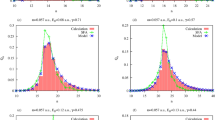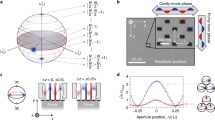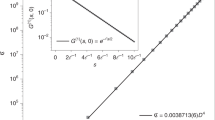Abstract
IT is well known that some years ago Smekal introduced the notion of ‘double quantum switches’ which are responsible for both coherent and incoherent scattering of light. These double switches consist in transition from a given state of the atom k to some ‘intermediate’ state n, and back either to k or else some other state l, the result being the emission of light quantum h(v - vlk) instead of the absorbed hv. This theory has since been justified by the new mechanics. Now it seems to me that its implications have not been fully realised, and it is my purpose to apply them to the problem of absorption of light by the conversion of light energy into heat.
This is a preview of subscription content, access via your institution
Access options
Subscribe to this journal
Receive 51 print issues and online access
$199.00 per year
only $3.90 per issue
Buy this article
- Purchase on Springer Link
- Instant access to full article PDF
Prices may be subject to local taxes which are calculated during checkout
Similar content being viewed by others
Author information
Authors and Affiliations
Rights and permissions
About this article
Cite this article
FRENKEL, J. The Quantum Theory of the Absorption of Light. Nature 124, 758–759 (1929). https://doi.org/10.1038/124758b0
Issue Date:
DOI: https://doi.org/10.1038/124758b0
This article is cited by
-
“The language of Dirac’s theory of radiation”: the inception and initial reception of a tool for the quantum field theorist
Archive for History of Exact Sciences (2022)
Comments
By submitting a comment you agree to abide by our Terms and Community Guidelines. If you find something abusive or that does not comply with our terms or guidelines please flag it as inappropriate.



